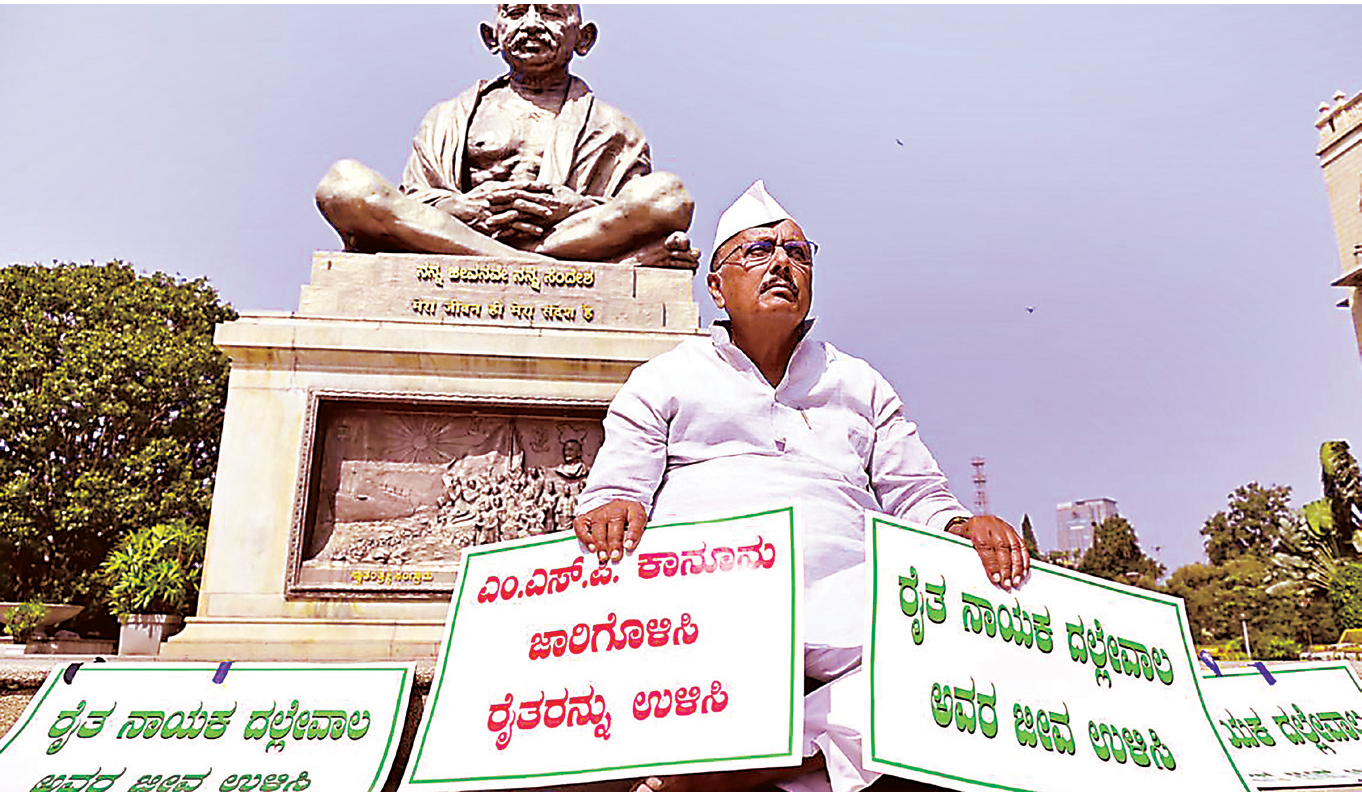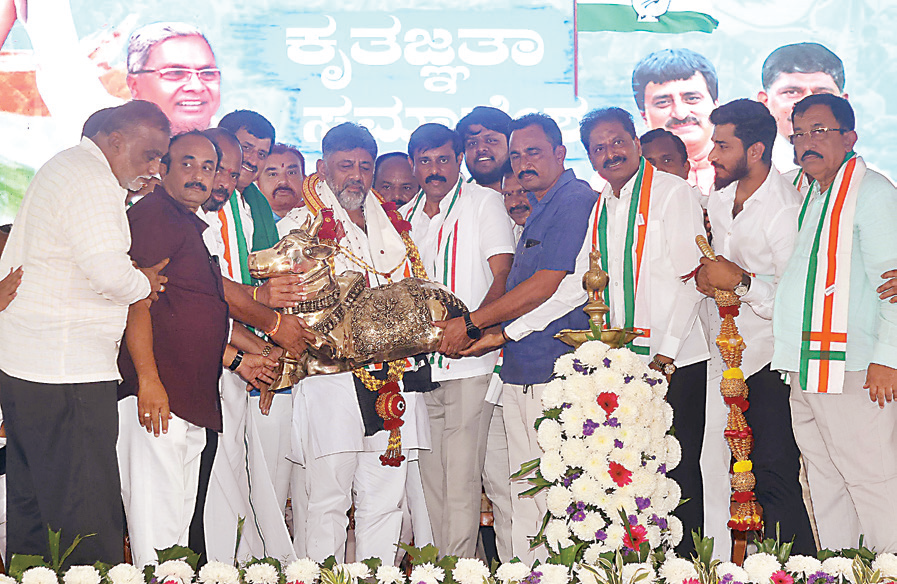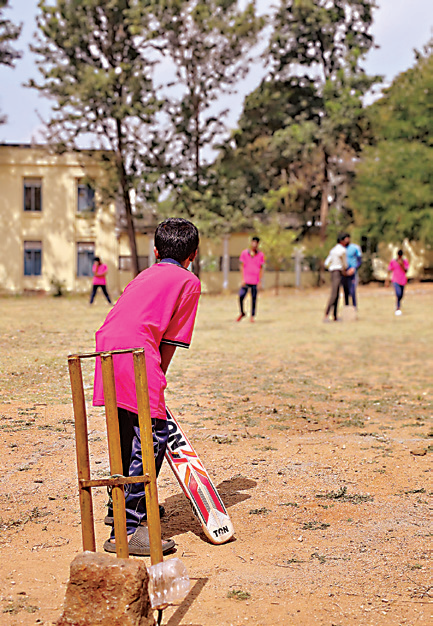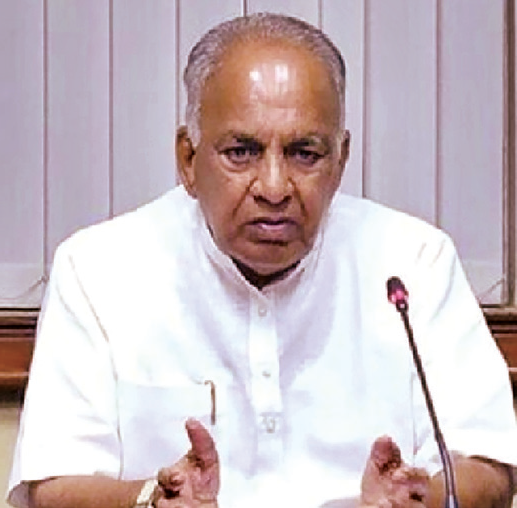
In Rajashekar’s demise, voice of pluralism falls
Muralidhara Khajane
Bengaluru
A pall of gloom has descended over the decades-long continued struggle against growing intolerance in the country, with the sad demise of G Rajashekar, (popularly known as GR for his friends and comrades)-one of the most committed public intellectuals of our times. He left this mortal world on Wednesday night. He was a fearless intellectual, writer and literary critic, who fought for decades against the scourge of communalization across the country, especially in India. It is difficult to portray GR even for wordsmiths, as his was an engrossing persona which could be chiselled with words.
After the departure of great souls such as; U R Ananthamurthy, Girish Karnad, Lankesh, Tejaswi, who not only led the movement against communalism as public intellectuals, G Rajashekar’s exit created a huge vacuum in the fight of progressive forces against growing intolerance in the country, especially in Karnataka, where organized groups are posing a serious danger to the right to life and free speech and expression.
Rajashekar, rejected Karnataka Sahitya Academy award for his 'Bahuvachana Bharata'-A a reaction to contemporary society in 2016, citing a “ceaseless attempt to silence the dissent and growing of intolerance”. He had reasoned out to this writer on his stand, by noting that; “besides silencing the dissent voices, the rightwing forces are bent upon eliminating voices of dissent. Issue of intolerance is dominating the public discourse of our time as right from Mohammad Akhlaq in Uttar Pradesh to the attack on persons of minority communities in coastal Karnataka, communal forces have become a great threat to the pluralistic culture of our India. My conscience is not permitting me to accept the award bestowed on me by Karnataka Sahitya Academy, which gets funding from the government”. During many conversations with him, Rajashekar had made one thing clear; he is not ready to accord a wholesale contract of patriotism to Bharatiya Janata Party (BJP) or Sangh Parivar.
Rajashekar was an ‘individual activist’ in one sense. Immediately after communal violence in any part of Karnataka, he was rushing to the area to find facts. Sometimes, it was a one-man committee headed by Rajashekar. With discriminating between perpetrators of violence and victims of the act, he used to collect every piece of information, after talking to all those concerned and hone his piece, which will be really remarkable document.
It is significant that; in his youth, Rajashekar had felt that; it was the Rashtriya Swayamsevak Sangh (RSS) or the Left movement that would provide a platform for the youths like him for social opportunities. Though he got associated with RSS initially, disenchanted with Sangh’s divisive ideology, which is detrimental to the pluralistic, multi-cultural society, Rajashekar developed a clinical understanding of RSS’s fascist approach to promoting Hindu, Hindutva to crush the pluralistic culture of the idea called India. His study of Marxist texts, understanding of Gandhian philosophy and Lohia’s socialism groomed Rajashekar as a writer and intellectual of a different calibre. Though he was part of the leftist movement, his rational thinking did not allow him to associate with the Left for long. He refused to accept the silence of Left about Stalin’s excesses in Russia, spine-chilling Mao’s Cultural Revolution, and Pol Pot’s Cambodian genocide and distanced from the Left. Despite that, he was a ‘comrade’ for leftists, liberals, and secularists who envisioned a society of love and empathy.
After his graduation, he worked for some time as a teacher and later joined the Life Insurance Corporation of India (LIC). “After serving this public sector undertaking for over three decades, Rajashekar settled in Udupi, which is his Punyabhoomi, Karmabhoomi and Jnanabhoomi”, says his close associate K. Phaniraj, a strong proponent of a tolerant society.
A hardcore socialist and a democrat Rajashekar, who believed in the plurality of the world, associated with Ratha Beedi Geleyaru-a vibrant cultural forum in the temple town of Udupi, which aimed at protecting and preserving the cultural interior of every human being, which is a kind of anti-thesis what present Udupi stands for.
There is no exaggeration in noted poet, H S Shivaprakash likening him to socialist writer Raymond Henry Williams, (He was an academician, novelist and critic within the New Left and with wider culture) “Never did Rajashekar aspired for power and recognition. He was a conscious keeper of Kannada literature” says H S Shivaprakash.
Another respected socio-cultural and political commentator Shivasundar likened him to Edward Wadie Said-(who was a professor of literature at Columbia University, a public intellec
 English daily published in Bengaluru & Doha
English daily published in Bengaluru & Doha






